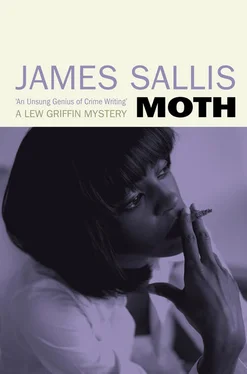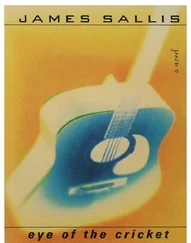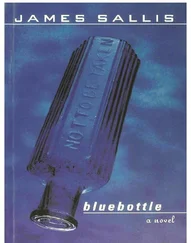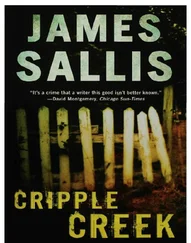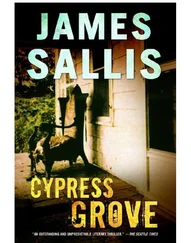James Sallis - Moth
Здесь есть возможность читать онлайн «James Sallis - Moth» весь текст электронной книги совершенно бесплатно (целиком полную версию без сокращений). В некоторых случаях можно слушать аудио, скачать через торрент в формате fb2 и присутствует краткое содержание. Жанр: Криминальный детектив, на английском языке. Описание произведения, (предисловие) а так же отзывы посетителей доступны на портале библиотеки ЛибКат.
- Название:Moth
- Автор:
- Жанр:
- Год:неизвестен
- ISBN:нет данных
- Рейтинг книги:3 / 5. Голосов: 1
-
Избранное:Добавить в избранное
- Отзывы:
-
Ваша оценка:
- 60
- 1
- 2
- 3
- 4
- 5
Moth: краткое содержание, описание и аннотация
Предлагаем к чтению аннотацию, описание, краткое содержание или предисловие (зависит от того, что написал сам автор книги «Moth»). Если вы не нашли необходимую информацию о книге — напишите в комментариях, мы постараемся отыскать её.
Moth — читать онлайн бесплатно полную книгу (весь текст) целиком
Ниже представлен текст книги, разбитый по страницам. Система сохранения места последней прочитанной страницы, позволяет с удобством читать онлайн бесплатно книгу «Moth», без необходимости каждый раз заново искать на чём Вы остановились. Поставьте закладку, и сможете в любой момент перейти на страницу, на которой закончили чтение.
Интервал:
Закладка:
I nodded.
“A sniper, according to the dossier. It said he’d killed at least eight people.”
“At least.”
“You stopped working as a bodyguard after that.”
“I stopped doing much of anything. Just kind of drifted into it. Drank a lot. It was a bad time.”
“Every night I’d get out that folder and read it. It was like making constellations out of stars: just raw information, that you could fill out any way you wanted. So every night I’d look at some facts, facts I knew by heart by then, and use them to make up stories about you. Those stories became more real to me than the world around me, more real than anything else, and for a time, far more important. Though all along I knew it wasn’t true. I knew you weren’t my father.”
“And that I wasn’t a hero.”
She nodded. “And that life is just doing the things you have to do: staying alive, getting through the day, turning into your parents. Maybe I was wrong about that part, huh? Maybe there’s something more to it?”
“Maybe.”
“Can I make you another pot of tea? That has to be cold by now.”
“Only if you’ll have some too. I’m already sloshing when I walk.”
“Deal.”
We went out to the kitchen. I leaned against the sink thinking of meals I’d prepared long ago for Verne, for Vicky and Cherie, remembering their laughter, seeing their faces, as Alouette emptied the kettle, drew fresh water and put it on to boil, filled the pot with hot water from the tap.
“Transportation’s going to be the biggest problem,” she said. “I figure between work, group meetings and whatever classes I settle on, I’m going to be piling up a lot of miles. I’ll centralize what I can, find locations closer in to home. But some of it, like work and school, won’t be so easy.”
“Give it time. We’ll see. Things start working out so that you decide you need a car, I’ll match whatever money you can save up for one. And I’ll take you to a friend who has a used-car lot and owes me a few favors.”
“All right .”
She emptied the pot, measured in Earl Grey, poured water, stirred once and set it to steep under a brocade cozy Vicky had sent me from Scotland years back.
When the tea was ready, we went back into the living room. Alouette settled on the couch with her notebook, feet tucked under her. I sat in my chair with a copy of Queneau’s Zazie dans le metro. I looked up at her after a while and thought how strange this tableau, this quiet domestic scene, was for both of us. Then how very alone I had been all these years, and how good it was to have someone here again.
Chapter Thirty-Two
Queneau once remarked that just about anyone could learn to move characters around, getting them from place to place and scene to situation, pushing them through pages like sheep until finally one arrived at something people would read as a novel. But Queneau himself wanted the characters and their relationships-to one another, to the sprawl of human history and thought, to the book itself-to be structured, wanted those relationships to be in the word’s purest sense constructed : in short, he wanted something more.
There are those who would argue- engages like Sartre, or perhaps in our own country the late John Gardner-that, in eschewing the tenets of “realistic” or mimetic fiction, he wanted less.
This strain of what we might call irrealism, this motive of artifice, in French fiction reaches back at least to Roussel, whose Locus Solus some of you may have encountered in Jack Palangian’s magic-realism seminar, and persists today in the work of Georges Perec, the group OuLiPo-cofounded by Queneau, incidentally-and American expatriate Harry Mathews.
Le Chiendent, Queneau’s first published novel, in fact consciously, deliberately parodies most all the conventions of realistic fiction.
It is a rigorously structured novel. Ninety-one parts: seven chapters each containing thirteen sections, each of them with its three unities of time, place and action, each confined to a specific mode of representation, or narrative: narration only, narration with dialogue, dialogue alone, interior monologue, letters, newspaper articles, dreams.
The novel, a meditation on the Cartesian cogito, in fact had its beginning in Queneau’s attempt to translate Descartes into demotic French. It opens with a bank clerk, Etienne Marcel, coming to consciousness, surfacing out of the slough of his unexamined life, while looking into a shop window. Taking substance from his sudden self-consciousness, and from the objective existence accrued from Pierre le Grand, who has happened to see him there at the window and become curious about him, Etienne is plunged headlong into a series of adventures-into the thick of life itself.
At one point le Grand, through whose eyes we witness much of the book’s early action, says: “I am observing a man.” And his confidante replies: “You don’t say! Are you a novelist?” To which he replies: “No. A character.”
As things go on, and as still more characters and situations are introduced, many of them truly bizarre-it’s rather like those jugglers who begin with a small cane or club and end up piling chair atop chair, all of it tottering there far above them-the novel turns ever more fantastic, drifting further and further from the moorings of realistic fiction, until at last the reader is forced to abandon any pretense that he’s reading a story about “real” people or events and to admit that he is only participating in the arbitrary constructions-reflective, complex, but always arbitrary-of a writer. A sophisticated game-playing.
From one of the novel’s many discursive passages:
“People think they are doing one thing, and then they do another. They think they are making a pair of scissors, but they have made something quite different. Of course, it is a pair of scissors, it is made to cut and it cuts, but it is also something quite different.”
A character muses: Wouldn’t it be wonderful to be able to say what that “something else” is? And that is exactly what Queneau attempts, here and in all his work: to touch on that “something else” we sense, yet never locate, in our lives.
Yet because he has a kind of horror of seriousness, it’s often at their most profound moments that his books and poems turn outrageously comic, dissolving into puns, bits of allusive and other business, vaudeville jokes, slapstick. One often thinks they are books that might have been written by an extraordinarily brilliant child.
Which brings us, quite naturally, to Zazie, a best-seller for Queneau and perhaps his most easily accessible novel.
As the book opens, murderous dwarf Bebe Overall has abducted little Zazie from the department store where her young mother was choosing fine Irish linen and has taken her into his underground lair far beneath the Paris metro lines, a place frequented by old circus performers, arthritic guitar players and legless Apache dancers, ancient socialists with Marx-like beards and tiny Trotsky spectacles. There Bebe-
Yes, Miss Mara?
I see. You may be right; perhaps in my enthusiasm I am not describing Queneau’s novel at all, but rather some alternate version, some possibility, of my own; have begun, as some colleagues might say, deconstructing it. Why don’t you tell us what actually happens in Zazie dans le metro?
Chapter Thirty-Three
I was, in a sense, singing for my supper. A latter-day minstrel show for ol’ massuh, ol’ massuh in this case being Dean Treadwell, who had chosen today-my first day back, after yesterday sheepishly calling my department chairman, apologizing for my absence so profusely that I began to stammer, and finally pleading a family emergency-to audit, as was his custom once each term with every course offered under his aegis, my class.
Читать дальшеИнтервал:
Закладка:
Похожие книги на «Moth»
Представляем Вашему вниманию похожие книги на «Moth» списком для выбора. Мы отобрали схожую по названию и смыслу литературу в надежде предоставить читателям больше вариантов отыскать новые, интересные, ещё непрочитанные произведения.
Обсуждение, отзывы о книге «Moth» и просто собственные мнения читателей. Оставьте ваши комментарии, напишите, что Вы думаете о произведении, его смысле или главных героях. Укажите что конкретно понравилось, а что нет, и почему Вы так считаете.
